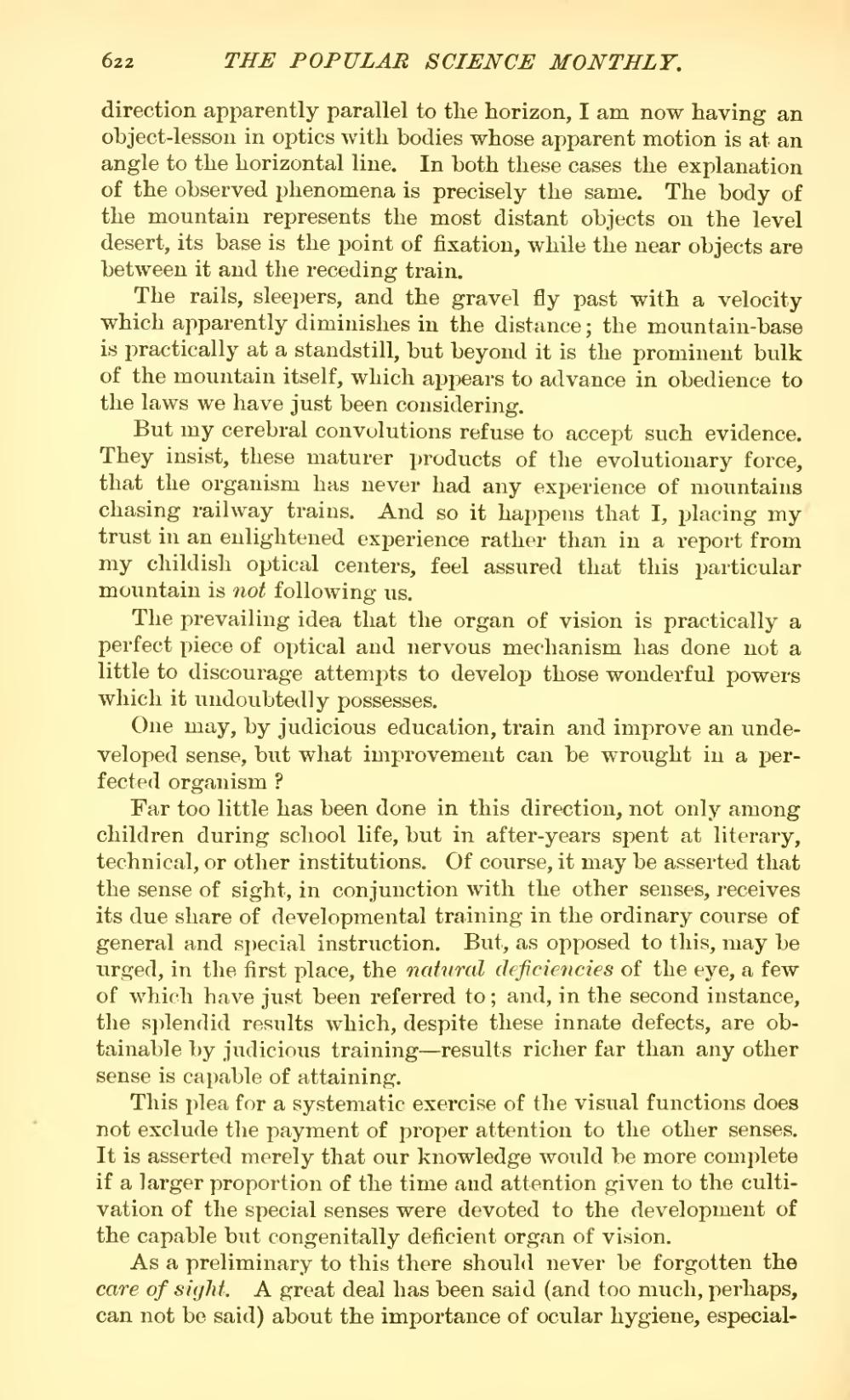direction apparently parallel to the horizon, I am now having an object-lesson in optics with bodies whose apparent motion is at an angle to the horizontal line. In both these cases the explanation of the observed phenomena is precisely the same. The body of the mountain represents the most distant objects on the level desert, its base is the point of fixation, while the near objects are between it and the receding train.
The rails, sleepers, and the gravel fly past with a velocity which apparently diminishes in the distance; the mountain-base is practically at a standstill, but beyond it is the prominent bulk of the mountain itself, which appears to advance in obedience to the laws we have just been considering.
But my cerebral convolutions refuse to accept such evidence. They insist, these maturer products of the evolutionary force, that the organism has never had any experience of mountains chasing railway trains. And so it happens that I, placing my trust in an enlightened experience rather than in a report from my childish optical centers, feel assured that this particular mountain is not following us.
The prevailing idea that the organ of vision is practically a perfect piece of optical and nervous mechanism has done not a little to discourage attempts to develop those wonderful powers which it undoubtedly possesses.
One may, by judicious education, train and improve an undeveloped sense, but what improvement can be wrought in a perfected organism?
Far too little has been done in this direction, not only among children during school life, but in after-years spent at literary, technical, or other institutions. Of course, it may be asserted that the sense of sight, in conjunction with the other senses, receives its due share of developmental training in the ordinary course of general and special instruction. But, as opposed to this, may be urged, in the first place, the natural deficiencies of the eye, a few of which have just been referred to; and, in the second instance, the splendid results which, despite these innate defects, are obtainable by judicious training—results richer far than any other sense is capable of attaining.
This plea for a systematic exercise of the visual functions does not exclude the payment of proper attention to the other senses. It is asserted merely that our knowledge would be more complete if a larger proportion of the time and attention given to the cultivation of the special senses were devoted to the development of the capable but congenitally deficient organ of vision.
As a preliminary to this there should never be forgotten the care of sight. A great deal has been said (and too much, perhaps, can not be said) about the importance of ocular hygiene, especial-

